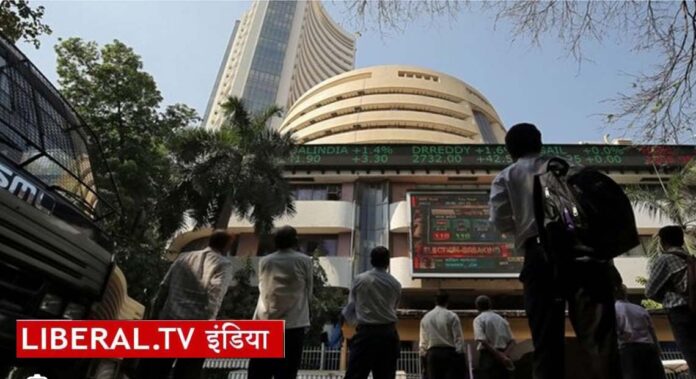For the fifth consecutive session, the Indian stock market benchmark, the Sensex, witnessed a significant plunge, shedding over 700 points during intraday trading on Monday, February 24. This drop was driven by a combination of weak global cues, rising fears over a potential trade war between the United States and other major economies, and the continuing outflow of foreign capital from Indian markets.
The day began with the Sensex opening at 74,893.45, down from its previous close of 75,311.06. The index quickly lost momentum and fell by 757 points, touching a low of 74,554. Similarly, the Nifty 50 opened at 22,609.35, compared to its previous close of 22,795.90, and slipped by over 1 percent to hit 22,562.
The market sell-off was not limited to the large-cap stocks but extended deeply into the broader market as well. The BSE Midcap and Smallcap indices both plunged more than 1 percent, reflecting the widespread nature of the bearish sentiment gripping investors. Around 10:05 AM, the Sensex was down by 756 points, or approximately 1 percent, at 74,555, while the Nifty 50 followed suit with a loss of 228 points, or 1 percent, at 22,568.
This persistent downward trend signals growing uncertainty in the markets. The fears surrounding a potential trade war, particularly between the US and China, have resurfaced as global economies grapple with escalating tensions. These concerns are compounded by the ongoing foreign capital outflows, as foreign institutional investors (FIIs) remain cautious about investing in Indian equities amidst global market volatility and domestic economic challenges.
The combination of these factors has resulted in heightened volatility in the Indian stock market, leaving investors on edge. While the domestic economy shows resilience in certain sectors, the stock market’s performance has been largely overshadowed by external risks and investor sentiment. The extended sell-off raises questions about the market’s ability to recover in the short term and whether the government and the Reserve Bank of India (RBI) will step in with measures to stabilize the situation.
In this turbulent environment, it is evident that investors are seeking safer havens and are becoming increasingly risk-averse, which could keep the market under pressure in the coming sessions. However, the situation also presents an opportunity for those with a long-term outlook, as such corrections often set the stage for rebounds once the global outlook stabilizes. For now, the market remains in a holding pattern, with global economic developments and domestic policy responses likely to dictate the next move for the Sensex and Nifty.



